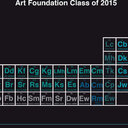Regulation of liver and kidney glucose-6-phosphatase gene expression in hemorrhage and resuscitation.
Keywords
Abstract
The authors have recently demonstrated that increased gene expression of glucose-6-phosphatase (Glu-6-Pase) in hemorrhagic hypotension (HH) and following lactated Ringer's resuscitation (LR) is associated with a decrease in insulin and an increase in corticosterone concentrations.
OBJECTIVE
To evaluate the in-vivo role of hormones the authors used insulin (IN), phentolamine and propranolol (PP) as an adrenergic blocker, and cyclic somatostatin (CS) as a glucagon blocker to prevent the induction of Glu-6-Pase gene expression in liver and kidney following HH and LR.
METHODS
Hemorrhage was induced in fasted anesthetized rats, and the reduction of blood pressure to 40 mm Hg for a duration of 30 minutes was accomplished by withdrawal or infusion of shed blood. The resuscitated group underwent hemorrhage followed by fluid resuscitation with lactated Ringer's solution.
RESULTS
Neither PP nor CS treatment could block the induction of Glu-6-Pase messenger ribonucleic acid (mRNA) following either HH or LR. However, the administration of IN significantly prevented the increase of Glu-6-Pase mRNA level and activity in both liver and kidney following HH and LR. This was associated with a normalization of plasma glucose, corticosterone, and glucagon levels and glucose-6-phosphate concentrations in liver and kidney toward prehemorrhage levels.
CONCLUSIONS
These results indicate that in-vivo treatment with insulin during hemorrhagic hypotension and resuscitation is capable of preventing the increase in Glu-6-Pase gene expression in liver and kidney responsible for the observed hyperglycemia.


